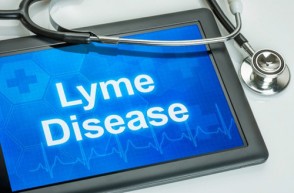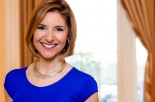Canceled Clients (4762)
Children categories

Train Your Body (438)
The show for fitness buffs or beginners. Expert guest from the American College of Sports Medicine (ACSM) discuss all areas of fitness, nutrition, athletics and sports medicine.
View items...
Staying Well (382)
RadioMD’s “talking” Health A-Z hosted by senior health correspondent, Melanie Cole, MS. Melanie interviews experts in the world of health, wellness, fitness and medicine.
View items...
Healthy Talk w/ Dr. Michael Smith (698)
Integrative physician, Michael A. Smith, MD is committed to providing listeners with the most current health information available.
View items...
Naturally Savvy (899)
Registered Holistic Nutritionist, Andrea Donsky and health expert Lisa Davis discuss their passion for living a natural, healthy lifestyle.
View items...
Eat Right Radio (48)
EatRight Radio, with experts from the Academy of Nutrition and Dietetics, discusses food and nutrition topics, healthy weight, allergies and health conditions, healthy aging, food safety and so much more. Give us 10-minutes and we'll give you the important information and expert advice from registered dietitian nutritionists to help you eat right, feel better, and live a healthier life. Hosted by Melanie Cole, MS.
View items...
Sharecare Radio (235)
Sharecare Radio, hosted by Sharecare’s own Dr. Darria Long Gillespie, SVP of Clinical Strategy at Sharecare, will appear live every Tuesday from 12 to 1 p.m. EST on RadioMD. Dr. Darria will break down the top health news of the week, pull in experts from around the country on a wide array of health topics and answer listeners’ live questions on all things health.
View items...
Wellness for Life (455)
On Wellness For Life Radio you will learn practical, easy-to implement tips to improve your life and start feeling better — the natural way.
View items...
The Wizard of Eyes (163)
Dr. Robert Abel Jr. talks about many of the important and unrecognized parts of our visual system which we so often take for granted. The show covers the usual common ocular disorders with an East/West approach to both prevention and therapy. The eye-brain connection is presented with information about memory retention, Alzheimer's, the myopia epidemic, and many more subjects. Dr. Abel discusses how the eye and vision are connected with remote parts of the body including your gut flora, musculoskeletal system, blood pressure, drugs and lifestyle. practical and simple health tips.
View items...
Code Delicious with Dr. Mike (135)
Code Delicious with Dr. Mike breaks all the rules. Unabashedly confronting the questions, concerns and conundrums that continually confuse both public and experts alike; Dr. Mike takes us on a tasty trip of inquiry.
View items...
CLEAN Food Network (98)
This show is a call to action for all the clean eating revolutionaries that care about their health and how and what they eat. Non-GMO, natural, organic . . . food the way nature intended. The clean food movement is huge and is growing exponentially. This companion program talks to experts in food preparation, healthcare, celebrities, and even those companies that care enough to provide the best, wholesome, organic foods and groceries.
View items...
Talk Healthy Today (213)
Looking to create your best self? Whether it’s good-for-you lifestyle hacks, smarter ways to supplement, or tasty tips to fuel optimal health, Talk Healthy Today brings you the latest research, tools, and common sense tips you need to get and stay healthy... starting today!
View items...
Be a Doer (17)
Be A Doer features master coach and TV personality John Abdo as he shares health and fitness tips aimed at getting you in shape – and keeping you there!
View items...The Power of Probiotics (3)
Probiotics is a major global industry. But like any industry, it had to have a beginning. Natasha Trenev is the daughter of an Eastern European family where the manufacturing of yogurt was a generational business. When Natasha emigrated to the US in the 1960’s, she brought with her 750 years of family experience with probiotics – and introduced the science (and the term itself) to her new country. Today, Natasha’s California-based Natren, Inc. is the recognized pioneer in probiotics and company founder Natasha Trenev has earned recognition as the Mother of Probiotics. Her more than 50 years of work in natural health is at the core of the unparalleled success of her company – and you will benefit from her depth of expertise in each and every episode of THE POWER OF PROBIOTICS.
Probiotics are live microrganisms that are commonly referred to as ‘friendly,’ ‘good’ or ‘healthy’ bacteria that function to help maintain the natural balance of organisms in the intestine. Throughout Natasha’s extensive work in the field of probiotics, she has always been amazed by how nature provides the very ‘good’ bacteria that can help overpower ‘bad’ bacteria to keep our digestive tracts functioning at peak performance. Properly cultivating friendly bacteria and ensuring their potency is at the core of the Natren Process. Natren is cited – by retailers, by the medical community and by consumers – as the best probiotic supplement available. Only Natren carefully chooses its probiotic cultures, formulates and manufactures its industry standard probiotics in its own plant and utilizes a specially-formulated oil matrix to protect probiotics bacteria to survive until they reach their destination in the upper small intestine. This is why only Natren is the most trusted probiotic supplement on the market. Truly, where other probiotic supplements promise – Natren Delivers.
To learn more about how probiotics can benefit your health, we are proud to introduce you to THE POWER OF PROBIOTICS with The Mother of Probiotics, Natasha Trenev.

Your Brain Health (24)
Noted Los Angeles-based neuroscientist and media personality Dr. Kristen Willeumier launches Your Brain Health with Dr. Kristen Willeumier, a podcast series that explores the latest news and information in the burgeoning science of brain health.
View items...Additional Info
- Segment Number 3
- Audio File naturally_savvy/1504ns3c.mp3
- Featured Speaker Nancy Rothstein, The Sleep Ambassador®
- Guest Website The Sleep Ambassador
- Guest Twitter Account @SleepAmbassador
-
Guest Bio
As The Sleep Ambassador®, Nancy Rothstein is dedicated to help people SLEEP WELL so they can LIVE WELL. Nancy consults and lectures on Sleep Wellness to Fortune 500 corporations, the travel industry, universities, schools, athletes and to other organizations, reflecting her dedication to education and raising awareness about sleep and sleep disorders.
In 2014, Nancy partnered with CIRCADIAN® to become Director of Corporate Sleep Programs, recognizing their global leadership in providing 24/7 workforce solutions for businesses that operate around the clock. In our 24/7 culture, sleep is being challenged and corporations must wake up to the impact sleep has on workforce optimization for ALL corporate employees.
With decades of consulting and experience in the financial and corporate sectors, Nancy brings an understanding of how sleep impacts productivity and profitability, as well as health care costs, in all organizations. Her compelling presentations about sleep, customized for the audience she is addressing, are sure to educate and inspire, bringing a new respect for sleep and its impact on productivity, health and overall well-being. Nancy collaborates with recognized medical sleep experts, as well as with other leaders, organizations and resources in the field of sleep. -
Transcription
RadioMD Presents: Naturally Savvy | Original Air Date: Wednesday, January 21, 2015
Hosts: Andrea Donsky, RHN and Lisa Davis, MPH
Guest: Nancy Rothstein, the Sleep Ambassador®
Lisa: If you ask my 10 year old daughter, I’m strict about 2 things. One is eating whole foods and eating a good diet. The other one is sleep. There is no wiggle room on our sleep schedule. I don’t care if we have relatives over that we haven’t seen in ten years. We’re still going to bed, at the time we go to bed. I’m a little extreme, but we’ll see what Nancy Rothstein has to say because I think it makes such a difference in the quality of our lives and, of course, in our health. Nancy Rothstein is the Sleep Ambassador®, Hi Nancy.
Nancy: Hello ladies, good morning.
Lisa: It’s great to have you on. I’m a bit extreme, but talk to us about how we can all get better sleep and, if I’m right, that’s just so important to our health.
Nancy: Well, just listening. If you look at honest living like you just mentioned. One of the most important things is that we can all go to the press and read a million things about sleep but very few people have ever actually taken a course on sleep. It takes up about 1/3 of our lives, and totally impacts the other 2/3 but most of us don’t really know much about it. If we learn about it, we still don’t know what to do about it. So one thing, in terms of the word honest, and this is very important, our bodies are always honest. Our bodies never lie. And the other thing about our bodies is that they’re very present. They’re not in the past, they’re not in the future, and they’re right now. Whereas our minds? Our minds are all over the place. We’re thinking about what we didn’t do and what we need to do, especially for many people when they lay down to sleep at night. Turning off a busy mind and all of that mind chatter is very difficult, so it plays a lot of havoc with falling asleep. The other issue is that transitioning to sleep is so hard for so many people. We could spend hours talking about technology and sleep. I like to say put technology to sleep a good hour before going sleep, without getting into the intricacies of what the blue light does on all of these devices we are on. But I’m going back to the point of listening to our bodies. They are honest. Shutting everything off. I like to say our biology hasn’t changed. Sleep is as essential as food or oxygen. We diet, we don’t live, and we die. But our behaviors have changed so drastically since Thomas Edison’s beautiful invention of the light bulb. Then you add to it all of the technologies, and thank you Steve Jobs and Bill Gates, but it’s all playing havoc with our sleep. We have to get back to the simplicity of sleep, and that’s what we’ve really lost. We’ve lost how simple it is. I love you that you Lisa, I think it was you, said that you are very strict about your sleep habits. That’s because you’ve recognized it as important and you’ve been able to honor it by doing the things you need to. As I like to say, prepare for sleep. It takes preparation for sleep, and it takes surrendering to slumber when literally laying down to fall asleep. Can you stay asleep?
Andrea: Nancy, I have a couple of questions and I’d love to hear your answers. For those people that have trouble falling asleep, what would you recommend?
Nancy: There’s a lot of answers to that, but because we don’t have a lot of time this afternoon, I’m going to give something that I’ve been teaching a lot in my consulting. I love to see the way it has impacted people so rapidly. When you can’t fall asleep it’s usually because your mind is to active, right? Would that be correct?
Andrea: Yes.
Nancy: Here’s a suggestion, a very quick one I’ll make; if you can combine body awareness with breathing and a gratitude practice, you’re pretty much going to cover all the bases to get your mind where it needs to be to go to sleep, which is relaxed, and not thinking about unknown (4:32). We’ve all probably heard, and anyone that’s been to yoga class knows a technique something like this, but when you combine these three different relaxations techniques it’s pretty powerful. It’s a way to get into your body and out of your head. So you start to breathe deeply. You start at your feet. This isn’t about tensing them up and then relaxing them; it’s just going to your feet and saying to them: “I’m so grateful you walked for me; you did so much today, you can rest now.” And then, without getting in to all the details, whatever works for the individual, go up through your body. Get to your stomach and say: “You just did so much work, you can rest now, you can rest.” Then get to your heart. When was the last time any of us thanked our heart? Our heart never gets to rest. It’s always beating and has such a huge impact on our existence. And then you just thank your heart. You thank it for beating all day, whatever comes to you. If there’s an emotional thing, thank it for the feelings, whatever it is, if you’re not asleep already. Remember, we’re combining gratitude, because when you’re grateful you can’t be angry or thinking of other things. We’re combining body awareness, body parts, whatever works for you. And we’re combining breathing, breathing into the different body parts. Then you go to your mouth and your eyes and your ears and your nose, and you breathe. It’s just such a simple thing to do. I’m not asking anyone to buy anything or do anything different, just spend the time spent tossing and turning into something that may be more effective to help them go to sleep. Now, if somebody is getting a fair amount of sleep but wakes up exhausted every day or wakes up during the middle of the night or unknown (6:38) tosses and turns for 2 hours, I highly recommend, I’m not a medical practitioner, that they seek medical care for a prospective diagnosis or treatment for a bona fide sleep disorder. That said, I think many people could improve their sleep just by their sleep preparation and their ability to relax when they get in bed.
Andrea: I definitely think that makes a lot of sense and I like that you say to thank our body, because I do believe that our body doesn’t get thanked enough I think a lot of us are very hard on our body. I think that giving it thanks and appreciation is definitely something that’s important for us to do. We only have about a minute and a half left. Is there anything else you would recommend for those who are listening, in terms of having trouble sleeping, anything you could recommend as the Sleep Ambassador®, that we can leave them with?
Nancy: Yes I would. I think one of the most effective things to help be people, being falling asleep or if they wake up during the night and falling back asleep, is don’t look at the clock. And if your clock is a cell phone, go out and buy and inexpensive clock that, if it has an LED light it should be red, or a simple old fashioned clock. Set the alarm a while before you go to bed. Liberate yourself from the time when you’re going to sleep and turn the clock around and move it far enough away that you’re not going to be pressing the snooze button, which definitely robs you of good sleep if you keep pressing the snooze button. But take away looking at the clock. It doesn’t cost anything, and again, it’s simple and it can have a huge impact on not activating the brain to start counting hours and everything that we do when we look at the clock. That’s important. And then do a self-assessment. What’s the reality here? Do a reality check on your sleep and don’t put too much pressure. Take small steps, adapt your sleep, but good sleep is definitely possible for everybody.
Andrea: Well, I think that’s a great note to end the show on, don’t you Lisa?
Lisa: Oh yes. I used to drive myself crazy looking at the clock. It makes it so much worse, she’s so right.
Nancy: It’s a huge tip, and it makes such a big difference. Such a small thing to do, with such a positive impact.
Andrea: Well, we agree Nancy. Thank you very much for being on our show today. You can learn more about Nancy by going to her website at www.TheSleepAmbassador.com. You can also follow her on twitter @SleepAmbassador. I’m Adrea Donsky along with Lisa Davis. This is Naturally Savvy Radio RadioMD. Like us on Facebook and follow us on twitter @YourRadioMD and @NaturallySavvy. Thanks for listening everyone. Sleep well and stay well. - Length (mins) 10
- Waiver Received Yes
- Host Andrea Donsky, RHN and Lisa Davis, MPH
Additional Info
- Segment Number 2
- Audio File naturally_savvy/1504ns3b.mp3
- Featured Speaker Kelly LeBrock
- Guest Website Kelly's Kitchen
- Guest Twitter Account @kellylebrock
- Guest Bio Kelly Le Brock, celebrated actress model, and soon to be author is taking #weirdscience to a whole new level through creating her foodie platform by blending social media channels, and a APP developed by Priceline founder and TEDMED curator Jay Walker. She is launching her lifelong passion project called Kellys Kitchen, leading into it as a "very busy" CHANGE AGENT for healthy eating and launching #calories4good, helping FOOD BANKs across America. You can see more on her social media and website. She started this journey by participating in Partnership for a Healthier America's Twitter Chat in 2014 resulting in over 100 million impressions. Kelly and the Food Network were the most retweeted #cookathome activist six days after the chat which had over 175 contributors.
- Length (mins) 10
- Waiver Received Yes
- Internal Notes repeat guest
- Host Andrea Donsky, RHN and Lisa Davis, MPH
Additional Info
- Segment Number 1
- Audio File naturally_savvy/1504ns3a.mp3
- Featured Speaker Carol Alt
- Book Title The Raw 50: 10 Amazing Breakfasts, Lunches, Dinners, Snacks, and Drinks for Your Raw Food Lifestyle
- Guest Website Carol Alt
- Guest Facebook Account https://www.facebook.com/modelcarolalt
- Guest Twitter Account @ModelCarolAlt
- Guest Bio Carol Alt is the ultimate pioneer and chameleon; constantly on the lookout for new ideas and new frontiers. Since her days as the world's most renowned Supermodel, Carol Alt has gone on to be multi-award winning actress, bestselling author on Raw Food Nutrition and hosting her own show, A Healthy You, on Fox News. Having twice graced the cover of the coveted Sports Illustrated Magazine's Swimsuit Edition and in February 2014 Alt was featured in the Sports Illustrated Swimsuit: 50 Years of Beautiful, celebrating the 50th anniversary of Sports Illustrated's swimsuit franchise. Alt's other activities include hosting various TV and radio morning shows and newscasts, including Good Day Live, GMA, Access Hollywood, and E! Entertainment. Forever touted as "the model that started the Supermodel trend" by John Casablanca, the owner of Elite Models – made Carol the first ever "Super Elite Model in the Supeer Elite Division." The press therefore dubbed her the first "Supermodel."
- Length (mins) 10
- Waiver Received Yes
- Host Andrea Donsky, RHN and Lisa Davis, MPH
Additional Info
- Segment Number 4
- Audio File train_your_body/1504tb2d.mp3
- Featured Speaker John P. Higgins, MD
- Organization ACSM
-
Guest Bio
 John P. Higgins MD, MBA (Hons), MPHIL, FACC, FACP, FAHA, FACSM, FASNC, FSGC, is a sports cardiologist for the University of Texas Health Science Center at Houston, Memorial Hermann-Texas Medical Center and the Harris Health System. His research interests include the effects of energy beverages on the body, and screening for underlying cardiovascular abnormalities in 12-year-olds (sixth graders), and steroid effects on the cardiovascular system.
John P. Higgins MD, MBA (Hons), MPHIL, FACC, FACP, FAHA, FACSM, FASNC, FSGC, is a sports cardiologist for the University of Texas Health Science Center at Houston, Memorial Hermann-Texas Medical Center and the Harris Health System. His research interests include the effects of energy beverages on the body, and screening for underlying cardiovascular abnormalities in 12-year-olds (sixth graders), and steroid effects on the cardiovascular system.
-
Transcription
RadioMD Presents: Train Your Body | Original Air Date: January 20, 2015
Host: Melanie Cole, MS
Guest: John P. Higgins, MD
MELANIE: Can eating more whole grains help you reduce cardiovascular disease? Really? Is there that close of a connection between whole grains, which some people say don’t eat because they’re carbohydrates and all, and cardiovascular disease? Well, quite possibly says my guest, Dr. John Higgins, Sports Cardiologist at the U.T. Science Center in Houston.
Dr. Higgins, tell us about this latest study about whole grains and reducing total mortality risk. That’s huge.
DR. HIGGINS: Yes. Oh, this is a big deal, Melanie. This was a very large study as well. It was published in The Journal of the American Medical Association Internal Medicine. They actually had a very large group of individuals--about 74,000 women and 43,000 men--who they followed since the mid-1980s through to the 2000s. They found that those individuals--and, you know, they had surveys on them every couple of years and they checked exactly what they were eating—that every one ounce serving, or about 28 grams, of whole grains was associated with a 9% reduction in cardiovascular deaths and a 5% reduction in all-cause mortality as well as in some of the groups—in the men, in particular—reduction in colorectal cancer. So, this is a big deal, Melanie.
MELANIE: Well, it certainly is. Now, let’s talk about what are whole grains because people don’t even really realize what it is and they see “whole wheat” on the bread or they see “whole wheat” pasta or multi-grain, so talk about what this even means when people are thinking about what they’re going to buy at the store today.
DR. HIGGINS: Sure, Melanie.
Well, there are three types of grains that are out there. They are the whole grains—and these are really kind of more of the old school type of grain that are not really processed much at all. So, they are almost like directly how they are grown. They’re basically just harvested. So, these are the things like brown rice, oatmeal, rolled oats, whole grain barley, cornmeal, whole wheat bread, for example, whole wheat pasta and wild rice. So, they seem to be the best.
The second group are what we call the refined grains and these are things like cornbread, corn tortillas, pita bread, white bread. So, what they’ve done is, they’ve taken the whole grains and they’ve processed them a little bit and changed them—taken some of the things out of them—to make them a little bit more tasty for some people that don’t like the whole grains.
Then, finally, there are the fortified refined grains where they actually take out some of the stuff that people don’t find palatable, but then, they add back in certain vitamins and things. What are some of the things that are being removed? So, a great example of this is rice. So, brown rice, we know, is a great whole grain and the husk of the rice contains some really, really important things—not only fiber, but also B vitamins. Now, if you take that husk off, you get white rice and some people just prefer it. It’s a little bit softer and easier to chew for some people. But, you’re missing out on some of those important fiber components as well as some of the vitamins. So now, there is a type of white rice which is fortified with extra B vitamins fiber, etc., etc.
But, you know, the best one, if you can do it, Melanie, is, of course, the whole grains like the wheat flour, the whole wheat flour, the oatmeal and the brown rice. We’re talking about 1 ounce or 28 grams per day as being a positive effect and, in fact, if you look at the recommended guidelines for most adults, they recommend that you probably shoot for about, you know, 5 or 6 ounces per day. So, an example of that would be maybe 2 or 3 slices of whole grain bread, 1-2 cups of unprocessed cereal and then maybe a cup of brown rice per day.
MELANIE: Okay. Now, you’re talking in ounces. Now, that doesn’t seem like a lot to me, Dr. Higgins, but then there are these people who say, “You know, eating three slices of bread is way too much carbohydrates for the day.” Or, “Pastas are bad for you at this point.” Or, you know, some of the newer whole grains on the market, the quinoas and, you know, the wheat berries and all these different things. People don’t even know what to do with those.
So, what do you say to those people that say, “You know, that’s too much carbohydrates altogether. That’s too much of that stuff that you should be eating at all anyway.”
DR. HIGGINS: Yeah. No, that is a good point, Melanie, and I think I was just listening to your session earlier on in this hour and I think that the important part about diet is to do things in moderation and have balance in the diet. So, the important part of the study was that it was 1 ounce or 28 grams per day of the whole grains that was sufficient to get a benefit and it did appear that taking a little bit more of this would give you a little bit more benefit. But, the most benefit seemed to come out of only having 1 ounce or 28 grams per day.
So, my take on this, Melanie, is for people to make sure that their servings of food have some sort of grain in them at least once or twice per day. And I think the three quarter rule where they talk about three quarters of your plate should have some sort of grain, vegetable and/or fruit and then maybe one quarter of your plate having some protein—whether it be soy or lean, fish, etc. I think that’s a reasonable thing to do for people.
And the amazing thing with the grains are a lot of people say, “Well what is in them? How do they do this?” Well, the whole grains—we know they have high fiber levels and we know fiber has been associated with improved cardiovascular health. They lower the LDL cholesterol. They lower your blood pressure. People fill up and feel full faster with whole grains, Melanie. So, they actually tend to be associated with lower weight and weight loss. They help to regulate the blood sugar levels and also whole grains often will contain calcium, Vitamin B, C and other essential minerals and nutrients like selenium, potassium, magnesium.
There’s also been an association with a reduction in inflammatory markers and we know that inflammation is really, really important for producing cardiovascular disease in the long run. So, I think there are a lot of things that are in them, but I do agree that in balance and as a part of a diet any time you do things to an extreme, I think it can be detrimental to your body. So, going to an all protein diet or an all grain diet, I don’t think that’s the way to do it. I think it’s having this as a part of your daily diet looks like it’s going to be good in the long run for you.
MELANIE: And not only that, the study talks about the cardiovascular disease, but you’re also talking about colorectal cancer and the fiber that’s in whole grains and multi-grains.
So, if you would, in the last minute or so, Dr. Higgins, wrap it up and kind of recap for us what those words mean that they see on the package of bread or pasta: whole grain, multi-grain, whole wheat. Kind of give a little re-wrap on that.
DR. HIGGINS: Well, I think the important thing when you are shopping for your sources of carbohydrates, just be aware of the fact that if it does mention whole grain or whole wheat, in general, in front of the product—whether it be bread, cornmeal, or rice, you are probably on a winner for getting your fix of your whole wheat and grain for the day which will not only improve the overall function of your body, but it will also reduce the bad things that you’re taking in. It will reduce your LDL cholesterol. It will improve your overall health and your cardiovascular health. And, importantly, if you do have a choice between whether it be a whole grain substance versus something next to it on the shelf which is a refined or fortified, you’re probably better off with the whole grain. We also know that if you’re eating more grain, you’re going to be eating less saturated fat and other things in the diet that are bad for you and you’re going to probably be exercising.
MELANIE: And be healthier. That’s right. So, that’s the way to have the healthy lifestyle and it might just reduce your mortality risk.
This is Melanie Cole. You’re listening to Train Your Body. Stay well. - Length (mins) 10
- Waiver Received No
- Host Melanie Cole, MS
Additional Info
- Segment Number 3
- Audio File train_your_body/1504tb2c.mp3
- Featured Speaker John P. Higgins, MD
- Organization ACSM
-
Guest Bio
 John P. Higgins MD, MBA (Hons), MPHIL, FACC, FACP, FAHA, FACSM, FASNC, FSGC, is a sports cardiologist for the University of Texas Health Science Center at Houston, Memorial Hermann-Texas Medical Center and the Harris Health System. His research interests include the effects of energy beverages on the body, and screening for underlying cardiovascular abnormalities in 12-year-olds (sixth graders), and steroid effects on the cardiovascular system.
John P. Higgins MD, MBA (Hons), MPHIL, FACC, FACP, FAHA, FACSM, FASNC, FSGC, is a sports cardiologist for the University of Texas Health Science Center at Houston, Memorial Hermann-Texas Medical Center and the Harris Health System. His research interests include the effects of energy beverages on the body, and screening for underlying cardiovascular abnormalities in 12-year-olds (sixth graders), and steroid effects on the cardiovascular system.
- Length (mins) 10
- Waiver Received No
- Host Melanie Cole, MS
Additional Info
- Segment Number 2
- Audio File train_your_body/1504tb2b.mp3
- Featured Speaker Felicia Stoler, MD
- Organization ACSM
-
Guest Bio
 Dr. Felicia Stoler is a registered dietitian, exercise physiologist and expert consultant in disease prevention, wellness and healthful living. She has a bachelors from Tulane University, a masters in applied physiology and nutrition from Columbia University and her doctorate in clinical nutrition from UMDNJ. Felicia serves on many local, state and national committees related to health and wellness. Felicia is a member of the American College of Sports Medicine and is a Fellow of the ACSM. Felicia is a member of the Academy of Nutrition and Dietetics and is on the House of Delegates.
Dr. Felicia Stoler is a registered dietitian, exercise physiologist and expert consultant in disease prevention, wellness and healthful living. She has a bachelors from Tulane University, a masters in applied physiology and nutrition from Columbia University and her doctorate in clinical nutrition from UMDNJ. Felicia serves on many local, state and national committees related to health and wellness. Felicia is a member of the American College of Sports Medicine and is a Fellow of the ACSM. Felicia is a member of the Academy of Nutrition and Dietetics and is on the House of Delegates.
Dr. Stoler hosted the second season of TLC's groundbreaking series, Honey, We're Killing the Kids!, which took aim at the unhealthy lifestyles of families, across the country, in an effort to motivate them to make positive changes. She is the author of Living Skinny in Fat Genes™: The Healthy Way to Lose Weight and Feel Great (Pegasus) which was featured in USA Weekend among the top “must have” books in 2011. She has been a contributor for FoxNews.com and written several book chapters. Stoler authored the ACSM’s Current Comment on Childhood Obesity.
Felicia has been on many national and local television and radio programs across the U.S. She is one of the most sought-after nutrition/fitness experts for TV, radio, newspapers and magazines. Felicia is passionate about helping people live healthier lives – and practices what she preaches. She maintains a private practice and provides consulting and public speaking. Felicia is the mother of two children and step mom of one – living in NJ. - Length (mins) 10
- Waiver Received No
- Host Melanie Cole, MS
Additional Info
- Segment Number 1
- Audio File train_your_body/1504tb2a.mp3
- Featured Speaker Felicia Stoler, MD
- Organization ACSM
-
Guest Bio
 Dr. Felicia Stoler is a registered dietitian, exercise physiologist and expert consultant in disease prevention, wellness and healthful living. She has a bachelors from Tulane University, a masters in applied physiology and nutrition from Columbia University and her doctorate in clinical nutrition from UMDNJ. Felicia serves on many local, state and national committees related to health and wellness. Felicia is a member of the American College of Sports Medicine and is a Fellow of the ACSM. Felicia is a member of the Academy of Nutrition and Dietetics and is on the House of Delegates.
Dr. Felicia Stoler is a registered dietitian, exercise physiologist and expert consultant in disease prevention, wellness and healthful living. She has a bachelors from Tulane University, a masters in applied physiology and nutrition from Columbia University and her doctorate in clinical nutrition from UMDNJ. Felicia serves on many local, state and national committees related to health and wellness. Felicia is a member of the American College of Sports Medicine and is a Fellow of the ACSM. Felicia is a member of the Academy of Nutrition and Dietetics and is on the House of Delegates.
Dr. Stoler hosted the second season of TLC's groundbreaking series, Honey, We're Killing the Kids!, which took aim at the unhealthy lifestyles of families, across the country, in an effort to motivate them to make positive changes. She is the author of Living Skinny in Fat Genes™: The Healthy Way to Lose Weight and Feel Great (Pegasus) which was featured in USA Weekend among the top “must have” books in 2011. She has been a contributor for FoxNews.com and written several book chapters. Stoler authored the ACSM’s Current Comment on Childhood Obesity.
Felicia has been on many national and local television and radio programs across the U.S. She is one of the most sought-after nutrition/fitness experts for TV, radio, newspapers and magazines. Felicia is passionate about helping people live healthier lives – and practices what she preaches. She maintains a private practice and provides consulting and public speaking. Felicia is the mother of two children and step mom of one – living in NJ. - Length (mins) 10
- Waiver Received No
- Host Melanie Cole, MS
Additional Info
- Segment Number 3
- Audio File sharecare/1504sc2c.mp3
- Featured Speaker Patricia Geraghty, NP
- Guest Website Sharecare
-
Guest Bio
 Patricia Geraghty, Sharecare Advisory Board Member, is a Nurse Practitioner with a passion for women's health. She translates complex health information into practical and achievable plans that make women's lives better. Ms. Geraghty did her graduate work on exercise and working mothers. She was the coordinator of an innovative Nurse Practitioner program in Oakland, California. She authored a guide for pregnancy. She now practices in Northern California and teaches women's health content in local graduate nursing education programs. She speaks nationally on topics pertinent to women's health across the lifespan. She has authored articles for professional journals.
Patricia Geraghty, Sharecare Advisory Board Member, is a Nurse Practitioner with a passion for women's health. She translates complex health information into practical and achievable plans that make women's lives better. Ms. Geraghty did her graduate work on exercise and working mothers. She was the coordinator of an innovative Nurse Practitioner program in Oakland, California. She authored a guide for pregnancy. She now practices in Northern California and teaches women's health content in local graduate nursing education programs. She speaks nationally on topics pertinent to women's health across the lifespan. She has authored articles for professional journals.
- Length (mins) 10
- Waiver Received No
- Host Darria Long Gillespie, MD, MBA
Additional Info
- Segment Number 5
- Audio File sharecare/1504sc2e.mp3
- Featured Speaker Darria Long Gillespie, MD
- Guest Twitter Account @Sharecarenow
- Length (mins) 10
- Waiver Received No
- Host Darria Long Gillespie, MD, MBA
Additional Info
- Segment Number 2
- Audio File sharecare/1504sc2b.mp3
- Featured Speaker Keith Roach, MD
- Organization Sharecare
- Guest Facebook Account facebook.com/keithroachmd
-
Guest Bio
 Dr. Keith Roach has been a practicing internist for over 20 years. Dr. Roach graduated from the University of California, Berkeley, and the University of Chicago. Dr. Roach now teaches and practices at Weill-Cornell Medical College. He has over 20 peer-reviewed publications, especially in disease prevention.
Dr. Keith Roach has been a practicing internist for over 20 years. Dr. Roach graduated from the University of California, Berkeley, and the University of Chicago. Dr. Roach now teaches and practices at Weill-Cornell Medical College. He has over 20 peer-reviewed publications, especially in disease prevention.
Dr. Roach is one of the creators of the RealAge test, a web-based interactive tool that empowers people to learn which lifestyle choices, medical issues, and genetic characteristics are making them healthy and unhealthy, and how to improve them. Dr. Roach is Chief Medical Officer at Sharecare and has a nationally syndicated health column. - Length (mins) 10
- Waiver Received No
- Host Darria Long Gillespie, MD, MBA














